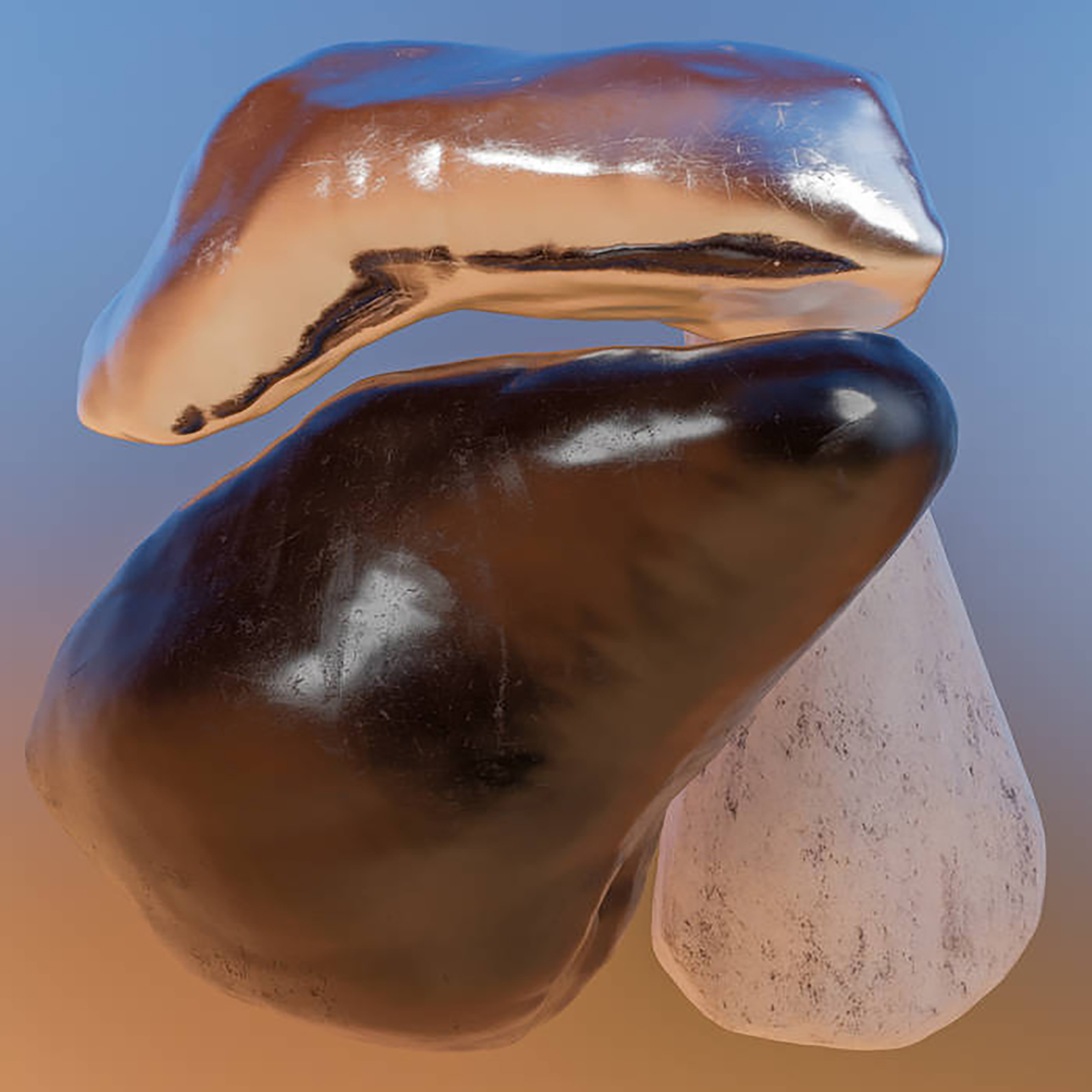Helm, "Chemical Flowers"
 Luke Younger has been increasingly ambitious in reinventing the Helm aesthetic with each fresh release over the last several years, but this latest release still caught me off-guard a bit: the bulk of Chemical Flowers is very different from the killer single ("I Knew You Would Respond") that preceded its release. To some degree, that admittedly fits Younger's pattern, as each of his EPs tends to feature one brilliant centerpiece surrounded by the more expected post-industrial sound collages. Though it is a full-length (and one that features string arrangements from JG Thirlwell), Chemical Flowers more or less replicates that same approach by simply doubling the amount of collages. That is perfectly fine by me, as I tend to enjoy Younger's abstract side almost as much as his beat-driven side and he is in especially fine form here. These collages are quite a bit different than usual though, as it sounds like there are a handful of '70s or '80s New Age/ambient albums lurking at the heart of Flowers that have been scorched, warped, and mangled beyond recognition.
Luke Younger has been increasingly ambitious in reinventing the Helm aesthetic with each fresh release over the last several years, but this latest release still caught me off-guard a bit: the bulk of Chemical Flowers is very different from the killer single ("I Knew You Would Respond") that preceded its release. To some degree, that admittedly fits Younger's pattern, as each of his EPs tends to feature one brilliant centerpiece surrounded by the more expected post-industrial sound collages. Though it is a full-length (and one that features string arrangements from JG Thirlwell), Chemical Flowers more or less replicates that same approach by simply doubling the amount of collages. That is perfectly fine by me, as I tend to enjoy Younger's abstract side almost as much as his beat-driven side and he is in especially fine form here. These collages are quite a bit different than usual though, as it sounds like there are a handful of '70s or '80s New Age/ambient albums lurking at the heart of Flowers that have been scorched, warped, and mangled beyond recognition.
I can think of few current artists who have pleasantly surprised me more often than Luke Younger in recent years, as the only consistent thread among his last several releases is that he is remarkably gifted at seamlessly pulling divergent influences into an aesthetic that can roughly be described as "post-industrial."He also has an especially excellent ear for sounds and textures, though I never know where those sounds will be coming from or how they will be structured.I thought I had an inkling of the direction this album would take after learning of Thirlwell's involvement and hearing the haunting and lyrical Middle Eastern melodies of "I Knew You Would Respond," but Chemical Flowers turned out to be a strange and shifting mirage that defies simple description.That is by design, of course, as one of the album's stated themes is the fluctuation of "temporal and spatial boundaries."In that regard, the opening "Capital Crisis (New City Loop)" does a fine job of making it clear what I am in for, as the first minute is a mind-melting descent into a cacophony of gibbering electronics, warped gong-like textures, and nightmarishly plunging strings.More glibly put, it sounds like a plane is about to crash-land on a Zoviet France album.After that initial plunge, however, a more structured piece emerges as a miasma of unsettling insectoid textures and strangled horns unfolds over a see-sawing two-chord synth motif.That "ethno-ambient" or "sci-fi tribal" aesthetic resurfaces a few more times over the course of the album and I am quite fond of it.
With "I Knew You Would Respond," however, Younger creeps into the more polished Fourth World territory of Jon Hassell and Richard Horowitz, as Thirlwell's exotic and sensuous strings are combined with a muscular, laid-back groove in an unconventional raga.It would be a stretch to say that Younger has gone pop though, as his uncharacteristically hooky groove is increasingly strafed by skittering and squirming electronic textures.In a weird way, that piece feels like a battleground of sorts and once the dust settles, it is clear that the forces of deconstruction and abstraction have handily vanquished Younger's more structured side.The next few pieces still tenaciously cling to a pulse of sorts, however.In "Body Rushes," a looping string motif provides the backbone for a steadily intensifying storm of sickly synths, backwards loops of jabbering noise, and stuttering percussive throbs."Leave Them All Behind," on the other hand, is a bit more sublime and meditative, as a skipping bass thrum provides a hypnotic backdrop for a gently hallucinatory swirl of water sounds and out-of-focus smears of dissonant synth tones. By the time the album gets to its final third, however, the bottom has definitively dropped out and any semblance of structure or melody is quickly and mercilessly mutilated.The most striking example of that trend is "Lizard in Fear," which sounds a tape player violently chewing up an '80s New Age synth album while I am being assailed by extra-dimensional horrors in a nightmarish swamp.The following "Toxic Racehorse" then replaces the vivid and disturbing textures of that hallucinatory swamp with a droning void populated only by sickly, plunging, and strangled strings hellbent on wresting away my last vestiges of sanity.
Instead of sinking deeper and deeper into that dark place, however, the album ends on an ambiguous upturn with the lysergic, neon-lit synth reverie of the title piece."Chemical Flowers" is unlike anything else on the album, as it has a structured and melodic center, but that center is a very late '70s/early '80s synth motif that perfectly captures bleary, artificial sound that was briefly in vogue for horror and science fiction movie soundtracks.That theme gradually becomes fleshed out with some warmer synth pads and strings, but the fragile beauty is endlessly curdled by passing dissonances and ugly pitch shifts.It calls to mind the opening scenes of a George Romero film in which people are going about their daily lives blissfully unaware that they will soon be enthusiastically devoured by a horde of zombies.That is an apt reference in a broader sense as well, as my overall impression of Chemical Flowers is that it sounds like an album made by someone deep into early and mid-'80s underground culture, but with technology and a breadth of esoteric influences that no one from that era would have had.If Younger could build a time machine and release Chemical Flowers on Staaltape in 1986, it would easily (and deservedly) be one of the defining releases of the era.Until he manages that, he will just have to content himself with being one of the consistently intriguing and restlessly creative artists making abstract electronic music in 2019.Some other recent Helm releases admittedly hit higher highs than this one, but I am hard-pressed to think of any that are as consistently strong or achieve such a focused and evocative vision.
Samples can be found here.



